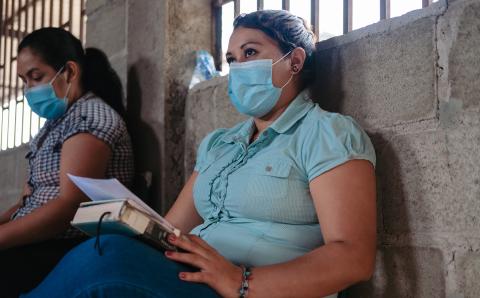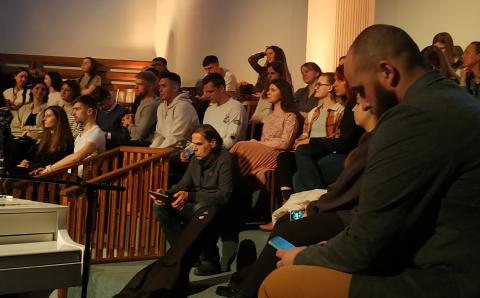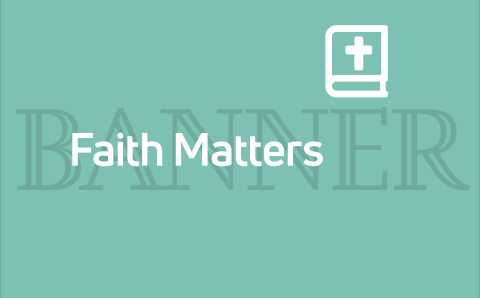The U.S. and Canada ministry boards of the Christian Reformed Church in North America and the binational Council of Delegates met May 3-5 in Grand Rapids, Mich.. The boards processed many reports and took several actions as the members prepare to report to synod, the governing body of the Christian Reformed Church on whose behalf the Council works.
The U.S. ministry board appointed a director of ministry operations to serve as its executive. The board also approved a vision for reshaping the building at 1700 28th St. SE in Grand Rapids. Without mandating a particular path, the board affirmed the building task force’s direction to seek a building solution that would be more “accessible and flexible,” offer a “ministry showcase” and pursue “more shared spaces and resources.” The board had previously empowered its executive committee to make decisions about the property. An $11 million overhaul that had been green-lit in October 2019 was put off and then canceled through the COVID-19 pandemic.
The Canada ministry board welcomed a new Canada advancement director for the CRCNA, Roshani Morton. Morton started in the position, which has been vacant since July, on April 24. Julie Cruickshank, director of human resources CRCNA-Canada, introduced her to staff in an email, saying, “Roshani has 10+ years of senior leadership experience working with faith-based organizations leading various advancement initiatives.” Morton began working in philanthropy in 2012, coordinating a missionary team serving the Cabecar people in Central America.
The Canada ministry board reviewed the work of its Canada-wide conversation organizing committee and decided to continue to host these “constituency engagement” gatherings each January and to ask classes to solicit four representatives at their fall meetings.
The chairs of three mercy and justice ministries in Canada—the Canadian Indigenous Ministries Committee, the Committee for Contact with the Government, and the Decolonization and Antiracism Collective—communicated with the board their disappointment and difficulty with the action of Synod 2022 to “affirm its position to recognize same sex behavior as sinful, as well as affirm this position as ‘confessional,’ meaning that members of the CRCNA are expected to hold this view.” They also wrote, “For the processes of reconciliation and justice to unfold, we’ve learned that ongoing listening, reciprocity, and dialogue is paramount. The weaknesses in the process of the human sexuality report, and the provisions for confessional status, create barriers to listening to dissenting voices and the voices of ‘the other.’ … (W)e name aloud the incongruence between the decisions of Synod 2022 with our commitment to advancing public dialogue and promoting the faithful work of justice in our churches.” The board received the letter and agreed “to invite the chairpersons from each committee to a future board meeting or another opportunity for further dialogue.”
World Renew-Canada director Jamie McIntosh, who was appointed in January, was welcomed to lunch with members of the Council of Delegates. Canada at-large delegate Melissa Van Dyk introduced McIntosh, asking him about his history as an ordained pastor and the link between ministries of mercy and justice and how they serve local churches. McIntosh, who is ordained with the Pentecostal Assemblies of Canada, said he has ministered to more congregations outside of his denomination than within after his many years working in the nonprofit sector, including founding the International Justice Mission. Recognizing that local churches are rooted in the vine that is Christ, he said he “wants to see the rich roots support and sustain the branches that go out.” Synodical services director Scott DeVries prayed for McIntosh who asked for prayer for his family, that he and his wife, Elizabeth, will be the best parents they can be, and that World Renew would join together as a global body, serving together. Before coming to World Renew McIntosh served Compassion Canada as chief programs and partnerships officer. He tweets original poetry on Twitter.
The Council of Delegates received updated bylaws and ecclesiastical letters clarifying the relationship of World Renew with the Christian Reformed Church in North America as one that is connected, but not directed. The bylaws will also be received by synod.
The Council dissolved the Collaborative Church Planting Team, which it had established in 2019. Resonate Global Mission and congregational ministries, which formed part of that team, reported that they are able to pursue its intended goals together without an additional external standing committee.
The Council acknowledged that “Thrive” is the new name for the congregational ministry agency that carries out the work of the formerly independent ministries of race relations, diversity, chaplaincy, disability concerns, faith formation, pastor church resources, safe church, the office of social justice, and worship. The Council endorsed a mandate for this agency in February and is recommending it to Synod 2023, as well as requesting “that synod (a) conclude the synodical mandates and directives given to the previously separate ministries in congregational ministries and (b) instruct congregational ministries to utilize these historical guidelines as valuable information for understanding synod’s intent regarding the desired denominational support for congregations” (Agenda for Synod 2023, p. 53).
The Council is also sending to synod several comments on overtures (formal requests) to be shared with the appropriate synodical advisory committees as they deliberate. The comments come
- from Calvin University and from the Office of General Secretary about the gravamen process and CRC agencies’ communication (Overtures 50-51, 54-55, 64, and 3);
- from the Council on an overture about the Council’s exception process for the statement of agreement with the beliefs of the Christian Reformed Church (Overture 57); and
- from congregational ministries, World Renew, and Resonate Global Mission on ecclesiological communication and membership decline (Overtures 3 and 12).
Synod 2022 had asked the Council to review “Ministry Shares Reimagined,” the recently revamped system by which member congregations contribute to shared denominational and ministry expenses. A report, to be forwarded to synod, noted, “In the United States, direct giving to agencies and ministries has increased since 2015, but the subtotal of ministry shares has declined over time. Churches have started to directly give to agencies and ministries, rather than funding general ministry shares,” and “Canadian ministry shares have declined (11%), but not at the rate at which membership is declining (15%).” The report recommends three adjustments:
- provide greater flexibility in the pledge process cycle;
- determine a base amount that covers core denominational costs; and
- provide more information on pledges and giving results to the churches and classes.
The Council recommends adding 222Disciple to the list of organizations recommended to the churches for support. 222Disciple is coordinated out of Sunlight Community Church in Port St. Lucie, Fla., and aims to foster development of Christian discipleship worldwide. It could be the last time that the Council forwards such a request to synod. Synod 2022 proposed stopping the practice of vetting organizations, noting little evidence that the accredited list is used by the churches and the significant cost in time in preparing the list.
The Council recognized the retirements of 10 outgoing members and also announced the results of its officer elections—conducted by email ahead of this set of meetings. Officers for the U.S. ministry board are Michael Ten Haken (Classis Lake Superior) as chair; Jill Feikema (Illiana), as vice chair; John Lee (Iakota), as secretary; and Drew Sweetman (Muskegon), as treasurer. For the Canada Ministry Board, at-large delegates Greta Luimes, Roberta Vriesema, and Henry Eygenraam were elected as chair, secretary, and treasurer, respectively. No candidates stood for vice chair (that election will be handled at a later date). Ten Haken was elected chair of the Council of Delegates; Luimes, vice chair; Eygenraam, treasurer; and Lee, secretary.
About the Author
Alissa Vernon is the news editor for The Banner.









